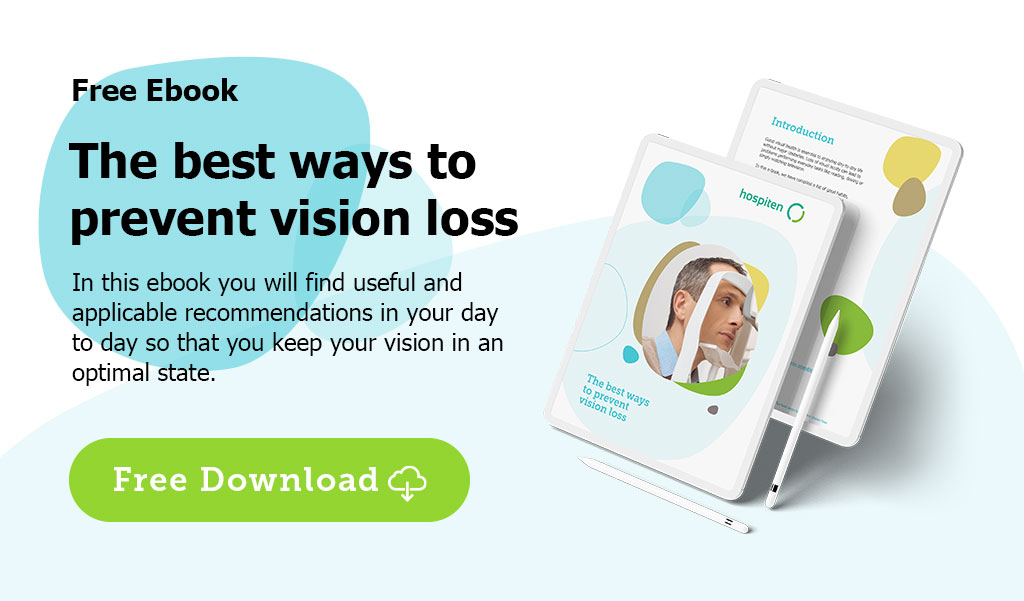The following tips for improving your eyesight offer insights into good habits and actions which will have a positive impact on your visual health.
Although they cannot cure problems such as short-sightedness, far-sightedness or astigmatism, they can certainly help you to correct minor complaints, like dry eyes or eye fatigue.
Tips for improving your eyesight
- Practise sport on a regular basis
- Follow a balanced diet
- Have your eyesight checked once a year
- Reduce exposure to screens
- Avoid alcohol and tobacco
- Drink water regularly
- Protect your eyes from the sun
- Avoid extreme temperatures
- Do exercises to train the eyes
- Take a break from glasses and contact lenses for a few hours a day
Practise sport on a regular basis
It is commonly known that sport is closely linked to good health. Practising sport regularly helps our physical and mental health and has a direct impact on regulating arterial pressure, reducing cholesterol and preventing cardiovascular diseases.
These are health issues which may not appear to be linked with visual health, but which can lead to serious diseases such as glaucoma or macular edema.
Follow a balanced diet
Following a varied diet without excessive calories and which includes a sufficient intake of vitamins and minerals helps to keep our eyesight in optimum condition.
A good vitamin A intake will help the retina to give 100%. This vitamin is found in carrots, potatoes, lettuce, etc.
Vitamin C reduces the probability of developing cataracts, and can be found in citrus fruit, strawberries and tomatoes.
Omega 3 fatty acids help to prevent macular degenerations associated with age. These healthy fats can be found in oily fish.
Following a healthy diet is definitely a good way to prevent different problems such as hypertension and cardiovascular diseases, as well as reducing inflammation.
Have your eyesight checked once a year
Visit your ophthalmologist to check your visual health is in optimum condition. You may be suffering from minor complaints such as dry eyes or eye strain, and they can give you advice as to how to get your sight back into tip top condition.
What’s more, detecting emerging ailments enables you to treat them quickly and prevent the symptoms from getting worse.
Reduce screen exposure
Screens are clearly a part of our daily lives, but excessive exposure can lead to headaches, dry eyes or eye fatigue. We therefore recommend reducing screen exposure as much as possible, and taking at least one 10-minute break an hour from using a screen.

Avoid alcohol and tobacco
Tobacco acts as a catalyst for certain problems with the retina and alcohol affects your general health. Excessive intake is linked to serious illnesses such as macular degeneration or cataracts.
Drink water regularly
Being well hydrated helps to keep the eyes hydrated too. Avoid letting your eye membranes get too dry, drink 2 liters of water a day, and slightly more on very hot days.
When your eyes are dehydrated your sight is not as sharp, they can get red and irritated.
Protect your eyes from the sun
High and frequent exposure to direct sunlight can damage your eyes, which is why you should wear sunglasses outside during the day. When your eyes are exposed to direct sunlight for a long time, it can cause damage to your retina and cornea.
Avoid extreme temperatures
Very cold A/C or air affects the state of your eyes. Both can lead to dry eyes and other problems in the long term.
Aim for average temperatures and avoid extreme cold or heat or sharp changes in temperature to keep your eyes hydrated.
Do exercises to train your eyes
Check out our article where we give you instructions on how to exercise your sight, relax your facial muscles and activate your eyes.
Take a break from glasses and contact lenses for a few hours a day
Glasses and contact lenses are great tools for achieving sharp vision. However, when we use them, our eyes don’t work very hard. This is why we recommend putting them to one side for a couple of hours a day and practicing not using them. If this is possible and if you don’t suffer from serious problems with your sight, this is the perfect way to activate your eyes so they make more of an effort to focus as well as possible.
If you notice your sight is deteriorating or you have eye complaints, remember to visit your ophthalmologist so they can assess your case and give you a reliable diagnosis.
